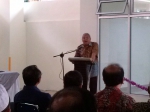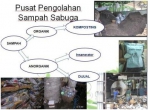Energy Management Laboratory ITB: A Comprehensive Energy Systems Analysis Center
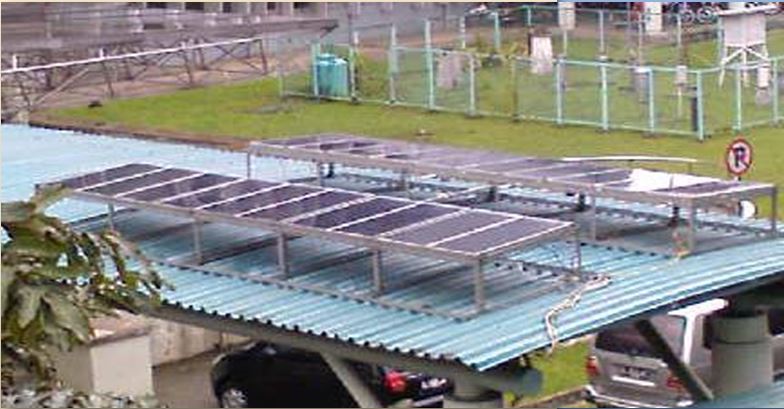
 BANDUNG, itb.ac.id - As one prominent academic institution in Indonesia, ITB continues to maintain and develop the quality of its education, one of them by continuing to conduct research that is beneficial to science. There are various types of research conducted by ITB, with field studies varied in different laboratories as well. One of the laboratories that have contributed significantly to the surrounding community is Energy Management Laboratory, which is under the auspices of the Engineering Physics study program.
BANDUNG, itb.ac.id - As one prominent academic institution in Indonesia, ITB continues to maintain and develop the quality of its education, one of them by continuing to conduct research that is beneficial to science. There are various types of research conducted by ITB, with field studies varied in different laboratories as well. One of the laboratories that have contributed significantly to the surrounding community is Energy Management Laboratory, which is under the auspices of the Engineering Physics study program. Founded in 2006, Energy Management Lab. is a laboratory that carried as a means of supporting academic activities in Engineering Physics ITB. In addition to this lab, Engineering Physics ITB also has Instrumentation and Control, Ultrasonic Laser and Optics, Acoustics, Lighting, Building Physics, and several other laboratories. As a multidisciplinary field, these laboratories, especially Energy Management Lab., conduct a comprehensive analysis of complex physical phenomena found in the energy system. In the Energy Management Lab, conducted research on a range of commercial building energy management systems and renewable energy.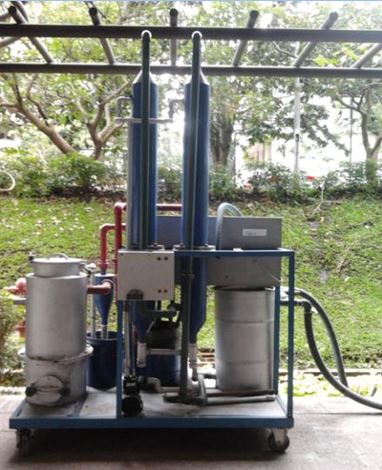 Energy Management Lab. emphasize research and educational activities related to finding solutions to the renewable energy and energy conservation. The second focus of this research was conducted through research related to the monitoring system, measurement technology, control and automation, electronic resources, energy balance analysis, and system processes. Headed by Dr. Ir. Edi Leksono, M.Eng. as the adviser, the lab also has a range of facilities to support research activities. Some of the facilities owned by the laboratory include wind turbines, solar panels, biogas reactor, and the biomass gasifier. In addition, Energy Management Lab. also has several support facilities such as a variety of sensors and measurement devices, programmable logic control, Arduino microcontroller developers, as well as other devices that support the data entry process.
Energy Management Lab. emphasize research and educational activities related to finding solutions to the renewable energy and energy conservation. The second focus of this research was conducted through research related to the monitoring system, measurement technology, control and automation, electronic resources, energy balance analysis, and system processes. Headed by Dr. Ir. Edi Leksono, M.Eng. as the adviser, the lab also has a range of facilities to support research activities. Some of the facilities owned by the laboratory include wind turbines, solar panels, biogas reactor, and the biomass gasifier. In addition, Energy Management Lab. also has several support facilities such as a variety of sensors and measurement devices, programmable logic control, Arduino microcontroller developers, as well as other devices that support the data entry process.
Teach Energy Conservation Through Lab Activities
In addition to performing a wide range of research related to energy conservation and development of renewable energy sources, Energy Management Lab. is also coordinating an integrated lab activities for students of Engineering Physics ITB. According to Sigit Aditya Kinardi (Engineering Physics 2009), Assistant Researchers who also contributed to the preparation of lab materials, all modules are made in Energy Management Lab. that is focused on two main objectives, namely energy conservation and renewable energy development.
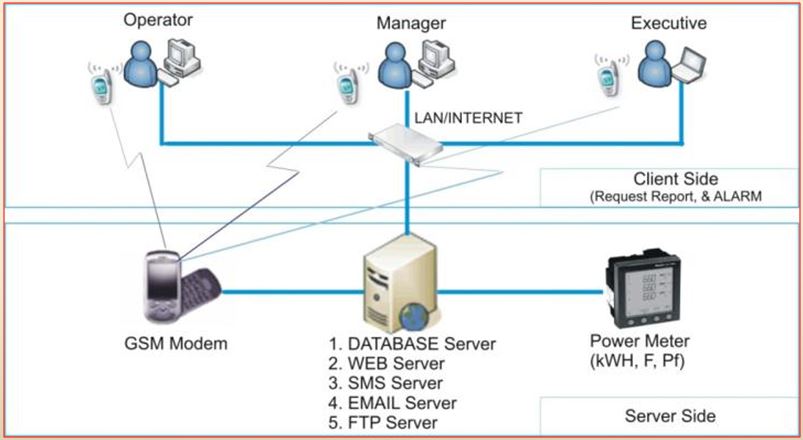 In practice, the students are required to complete 4 practicum modules. The first module deals with the supervision of electrical energy, in which the practitioner is directed to create and design a tool for measuring electrical energy and its parameters. "With further development, these electrical energies can also be monitored from anywhere and at anytime through mobile phones or other electronic equipment," said Sigit.
In practice, the students are required to complete 4 practicum modules. The first module deals with the supervision of electrical energy, in which the practitioner is directed to create and design a tool for measuring electrical energy and its parameters. "With further development, these electrical energies can also be monitored from anywhere and at anytime through mobile phones or other electronic equipment," said Sigit.
In addition to electrical energy monitoring module, there is also a module for studying the boiler through the boiler simulator system that converts water into steam. This steam can then be used as an energy source in advanced industrial processes. The practitioner also investigated the battery more depth in the lab activities, ranging from characteristics, constituent materials, as well as its utilization as an energy source in the future. "Currently Energy Management Lab. also contributes to make ITB as the only university in Indonesia which developed battery management system (BMS)," said Sigit. BMS is the sole original source of energy that compiled by the students as a source of energy in the national electric car.
In addition, the lab activities at the Energy Management Lab. also examined Hybrid Renewable Energy Systems (SHET), which is a merger of all forms of renewable energy by making use of everything that exists in nature. SHET is the origin of the concept of energy-efficient homes which are still being developed until now.
Installing Energy Sources in Government Facilities 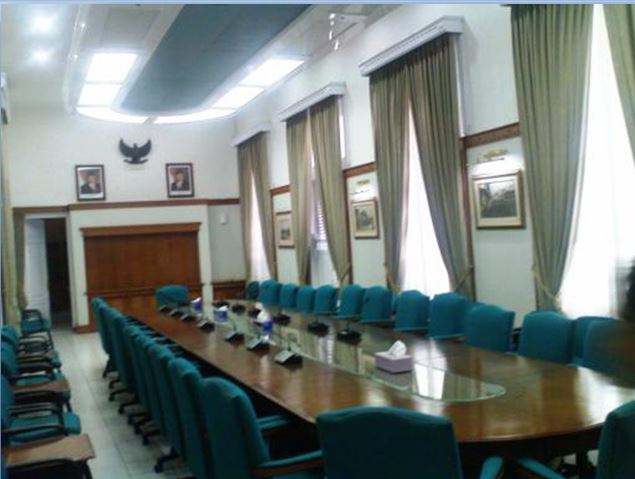 In connection with his research activities, Lab. Energy Management has successfully helped several buildings of government agencies with applicative research object. A few years ago, Energy Management Lab. held the installation of solar panels with capacity of 500 Wp on a Regional Planning Agency (Bappeda) West Java building. The solar panel is able to meet the Bappeda building's operational electricity needs everyday.
In connection with his research activities, Lab. Energy Management has successfully helped several buildings of government agencies with applicative research object. A few years ago, Energy Management Lab. held the installation of solar panels with capacity of 500 Wp on a Regional Planning Agency (Bappeda) West Java building. The solar panel is able to meet the Bappeda building's operational electricity needs everyday.
In addition to installing solar panels on government buildings, Energy Management Lab. is also contributing in support of government-owned facilities, one of which Suramadu Bridge. In 2011, a team of Energy Management Lab. led by Dr. Ir. Edi Leksono successfully initiate an integrated energy supply system for Suramadu. The energy supply system is in the form of Renewable Energy Hybrid System, which consists of Wind Power Plant with a capacity of 10 kWp, a capacity of 1 kWp of solar panels, as well as Wave Power Plant and Power Plant Flow, each with a capacity of 10 kWp.

scan for download





